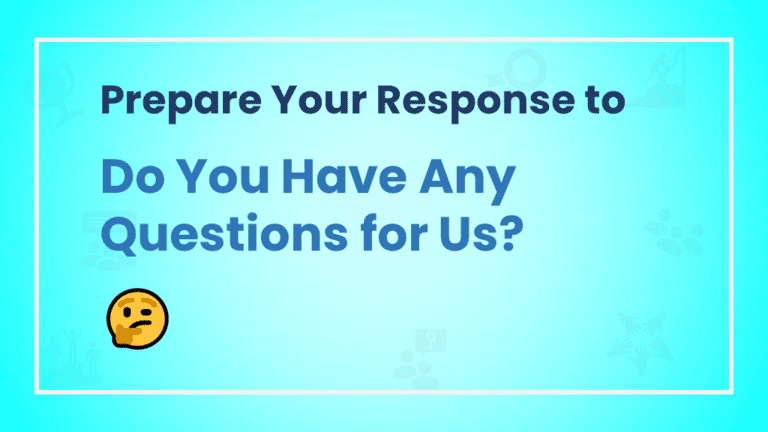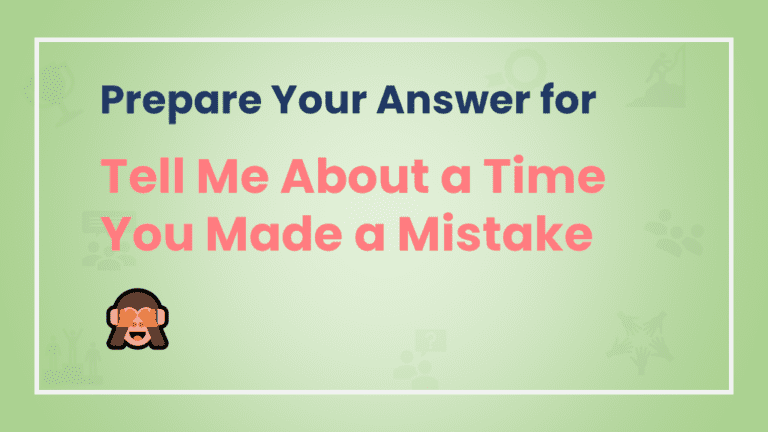Congratulations! You've landed an interview for your dream job. You've prepared for the tough questions, brushed up on your skills, and you're ready to impress. But then, the interviewer drops the dreaded question: “What are your salary expectations?” 😨
Don't panic! Answering this question gracefully can be challenging, but with the right strategy, you can navigate it smoothly. In this article, we'll guide you through the process of answering. 😄

1. Research 🔍
Before your interview, do your homework. Research the company, industry standards, and typical salary ranges for the position you're applying for.
📊 Researching your target salary beforehand gives you a solid foundation to build your response on.
2. Stay Positive and Smile 😁
When you're asked about salary expectations, maintain a positive attitude. Smile and show enthusiasm for the position and the company. Responding with a negative or indifferent tone can send the wrong message.
🌟 Positivity is key to leaving a good impression.
3. Buy Some Time ⏳
If you're caught off guard, it's okay to ask for a moment to think. Say something like, “I'd like to learn more about the role and the company's expectations before discussing compensation.” This gives you time to collect your thoughts.
⏳ Don't rush into an answer; take your time to formulate a thoughtful response.
4. Be Flexible and Avoid Specific Numbers 🤹♀️
Rather than giving a precise figure, consider discussing a salary range. This allows for negotiation later on and demonstrates your flexibility. For example, “I'm looking for a salary in the range of X to Y.”
🎯 Keeping your answer flexible can open doors for negotiation.
5. Emphasize Your Value 🌟
Highlight your skills, experience, and qualifications that make you an asset to the company. Explain how your expertise aligns with the job's responsibilities and why you deserve the salary range you mentioned.
💪 Showcase your value to justify your salary expectations.
6. Mention Benefits and Perks 🎁
Salary isn't the only factor to consider. Talk about other benefits and perks you value, such as health insurance, retirement plans, flexible hours, or professional development opportunities. This shows you're looking at the big picture.
🎉 Perks can sweeten the deal and make your compensation package more appealing.
7. Practice, Practice, Practice 🗣️
Rehearse your response with a friend or in front of a mirror. Practice helps you feel more confident and articulate during the actual interview.
🗣️ Practice makes perfect when it comes to answering tricky questions.
8. Remain Calm and Professional 🧘♂️
No matter the outcome, stay composed and professional. If the salary offered doesn't meet your expectations, you can negotiate politely and respectfully.
🧘♂️ Keeping your cool reflects well on your professionalism.
Sample Approach and Answers to “What Are Your Salary Expectations?”
1. The Flexible Range Approach:
“I'm looking for a competitive salary that reflects my skills and experience in the range of X to Y monthly/annually. However, I'm open to discussing this further based on the specific responsibilities and benefits associated with the role.”
2. The Value Proposition:
“My primary focus is to contribute my expertise and dedication to this role. I'm confident that my skills in [mention relevant skills] will be valuable to the company. While I'm open to discussing a competitive compensation package, my priority is aligning my contributions with the company's success.”
3. Emphasizing Benefits and Perks:
“I'm seeking a comprehensive compensation package that includes a competitive salary along with benefits like health insurance, retirement plans, and opportunities for professional development. I believe in looking at the overall package rather than just the salary figure.”
4. The Research-Inspired Response:
“Based on my research and industry standards for this position in this region, I understand that the typical salary range is between X and Y. Given my experience and qualifications, I would feel comfortable within this range. Of course, I'm open to discussing the specifics further.”
5. The Collaborative Approach:
“I'm excited about the opportunity to join your team, and I'm confident that my skills and dedication will make a meaningful contribution. I believe in open and transparent communication, so I'm looking forward to discussing compensation in more detail with you. What is the company's typical salary range for this role?”
Remember to adapt these answers to your specific situation and research. Tailoring your response to the company, industry, and your own qualifications will help you make a compelling case during the interview.
Sample Scenario-Based Answers
Scenario 1: Software Developer
“I've thoroughly researched the salary standards for software developers in this area, and the range typically falls between X and Y. Given my experience and proficiency in [mention relevant programming languages and skills], I believe a salary in this range would be appropriate. However, I'm open to discussing the specifics and would consider other factors such as benefits and opportunities for growth.”
Scenario 2: Marketing Manager
“For the role of Marketing Manager, I'm aiming for a competitive salary commensurate with my experience and the responsibilities of the position. Based on my research and industry standards, a salary in the range of X to Y seems reasonable. I'm also interested in discussing potential performance bonuses and other benefits that contribute to my overall compensation package.”
Scenario 3: Sales Representative
“In the field of sales, I understand that compensation can be performance-driven. I'm looking for a competitive base salary that recognizes my skills and experience, ideally in the range of X to Y annually. However, I'm highly motivated by performance incentives and bonuses, so I'm excited to discuss commission structures and targets that align with the company's goals.”
Scenario 4: Graphic Designer
“As a Graphic Designer, I'm enthusiastic about contributing my creative skills to your team. Based on my portfolio, experience, and industry research, a salary range of X to Y seems appropriate for this role. Additionally, I value opportunities for professional development and creative projects, which would also factor into my overall job satisfaction.”
Remember that these are general guidelines and should be adapted to the specific company, location, and your qualifications. Tailoring your response to each job scenario demonstrates your understanding of the role and industry, making you a more attractive candidate.
Conclusion 🎉
Handling the “What are your salary expectations?” question during an interview can be challenging, but with preparation and the right attitude, you can navigate it successfully. Remember to research, stay positive, be flexible, and emphasize your value to the company.
By following these tips, you'll increase your chances of securing the job you desire with a compensation package that satisfies your expectations. Best of luck with your interview! 🍀💼🌟





